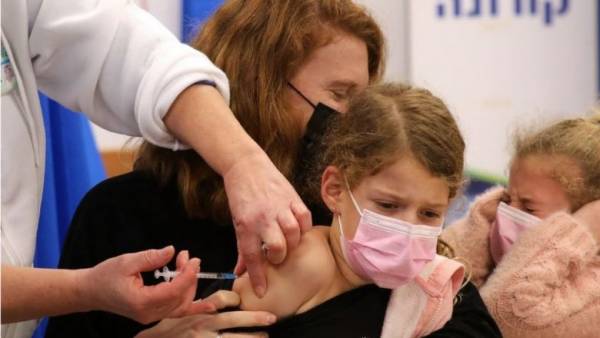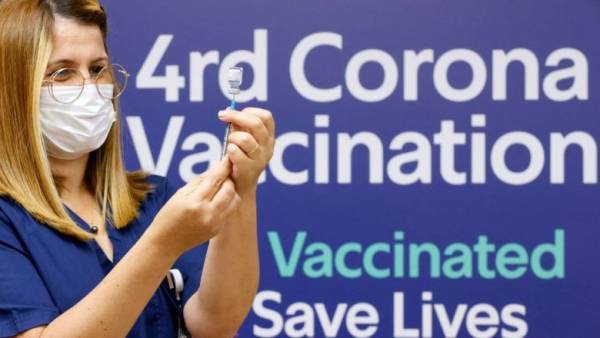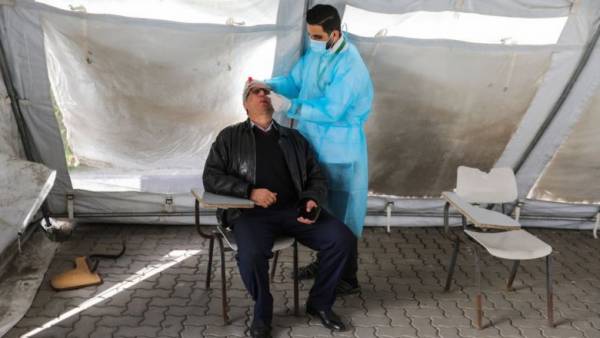
He noted that this is not the most successful way to achieve collective immunity and that it would be much better if it could be achieved through vaccination.
According to existing estimates, by the end of January, about four million people in Israel may become infected with Omicron.
Israeli Prime Minister Naftali Bennett was forced to admit that the current strategy to combat the pandemic in the country will not be able to prevent a rapid increase in the number of infected.

On Sunday, Bennett said that people over the age of 60 and health workers will receive a fourth vaccination, which will protect them from a severe form of the disease.
Earlier, he insisted that the main goal in the fight against Covid-19 is to prevent a surge in serious cases of the disease, but so that the economy does not suffer at the same time. However, the Israeli Prime Minister noted that it is impossible to exclude the introduction of a repeated lockdown.
In 10 days, the number of new cases has quadrupled, reaching 3,500 people. But the number of deaths has increased slightly.
Collective immunity is a scientific term describing a situation in which the spread of the disease in society is extremely limited due to the fact that most people have immunity: either developed after the disease or after vaccination.

Professor Ash said that the increase in the number of cases of Omicron is inevitable: “The price of collective immunity is a lot of cases. This is exactly what can happen. But we would prefer to achieve it in the course of mass vaccination.”
However, Salman Zarqa, head of the Ministry of Health’s working group on combating coronavirus, said that even if the vast majority of the population gets sick, collective immunity is not guaranteed at all.
“We have to be very careful with such statements—” he said in an interview with the Ynet news site— “the experience of the past two years shows that even recovered people can get infected again.”
Meanwhile, another government adviser, Eran Segal from the Weizmann Research Institute, warned that the number of cases of the disease will soon exceed Israel’s testing capabilities, as a result of which the country will not be able to detect new cases of infection.

According to his forecasts, two to four million people will become infected in the next three weeks, although the number of severe forms of the disease will be significantly less than during the previous wave.
He called on the citizens of the country to do all the necessary vaccinations. “Every person leaving home becomes vulnerable, and everyone should be protected,” he wrote on Twitter.
About two-thirds of Israel’s nine million people have been fully vaccinated. The Ministry of Health refers to those who received three doses of the vaccine or recently received a second one. However, not all of those who are eligible for a third vaccination have done it.
At the same time, Israel has already approved the fourth dose of the vaccine for people with weakened immunity and for those who live in nursing homes.

Meanwhile, according to the non-profit publication Our World in Data, just over a quarter of Palestinians have been fully vaccinated. The Palestinians received doses of the vaccine from Israel, Russia, China, the United Arab Emirates and from the global vaccine exchange initiative Covax.
UN experts have criticized Israel several times for failing to fully extend its vaccination program to the Palestinian population under its control. The Israelis also said that the Palestinians themselves should be responsible for solving health issues in the Palestinian territories.